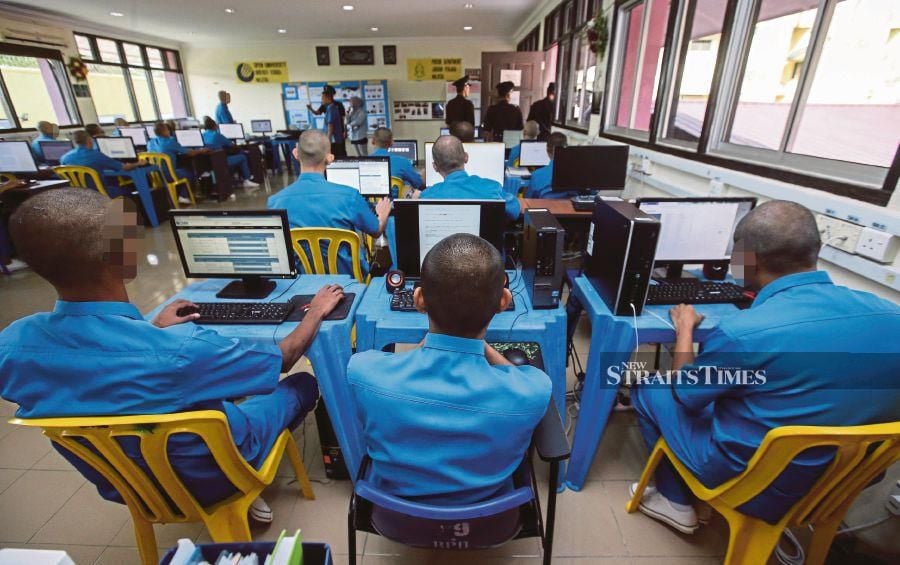KUALA LUMPUR: AFTER serving their sentences, ex-convicts have to start a new life when they return to society.
It is this life that the Prisons Department focuses on as it works to change the behaviour of inmates so that when they are released, they can start all over again.
Towards this end, the department provides a series of vocational training inside the prison and on-the-job programmes. These will equip the prisoners with new skills to help them find a job or start a business once they leave confinement.
The in-house vocational training programme, called Skim Latihan Dual Nasional (SLDN), offers 30 disciplines that include knitting, agriculture, furniture making, wood carving, automotive, pastry making, animal husbandry, frozen food business, batik design and songket making.
To date, more than 17,000 inmates have been enrolled, according to the department’s statistics.
Products made by prisoners are marketed under the MyPride brand, which can be found at select Mydin stores.
Statistics point to a RM34 million annual sales bracket from these products, with the profits shared among the prisoners to allow them to buy things or savings when they are released.
The profits can also be spent on upgrading equipment under the programme, which is a win-win situation.
The Prisons Department hopes that its prisoners can see the value of their work in helping them earn an honest living.
The department also provides on-the-job training outside prison walls with companies under its Corporate Smart Internship (CSI) programme.
The programme involves prisoners who are well-behaved and have been given parole.
These are inmates who have had their prison time reduced and will be attached to the CSI programme to receive training and eventually work for companies that match their talents and interests.
To date, the department’s statistics point to more than 20,000 prisoners being enrolled in the programme and 90 per cent of them have been employed by their host companies.
A department spokesman said the parole system, through the CSI programme, has also caught the attention of the governments of Vietnam and Japan.





